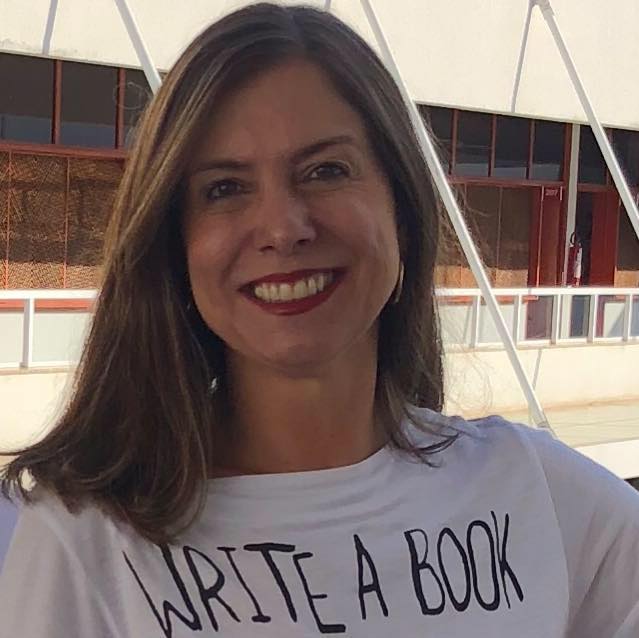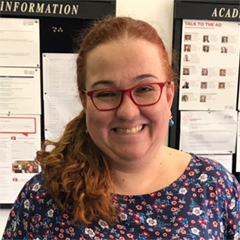YES! Let’s keep on talking about writing
It was two years ago today that I wrote a post for this same blog entitled Why don’t we talk about writing? The 15th BRAZ-TESOL International Conference had just ended and I discussed why there were so few talks on the subject of writing and why not many people chose to attend them, mine included. I was disappointed with the small turnout in my talk with my colleague Silvia Caldas, and also with the very little focus on this subject in conferences in general, and I conjectured why this was so. I was about to give up presenting on this topic.
Two years have gone by and I have to say that I am not pessimistic anymore. Rather than give up the topic altogether and present on a more “sexy” subject, I decided to invest more time and energy in making teachers aware of the importance of teaching writing. It was actually my disappointment that led me to write a book on teaching writing, in which I present a practical approach for skills-integrated contexts, using a process-genre approach. My goal was to provide the necessary theoretical information – without turning it into an academic book – and tools for teachers to feel fully equipped to adapt writing activities in their course books and/or write their own, according to the framework provided.
I also taught an online course entitled Writing for Teachers which had two desired outcomes – to provide teachers with information on teaching writing and also to help them improve their own writing. In other words, they wrote about writing and other ELT topics in different genres as they learned more about how to teach writing. Their final product was a blog post that was published in our school blog, called CTJ Connected.
In addition, I worked with the course coordinators at our school to implement a more consistent writing curriculum in which students would write texts in different genres, not only the traditional essay, and in which students would develop genre awareness and work on the pre-writing stages more consistently. I have to say that the writing activities that the course coordinators Ana Netto, Ângela Minella, and Silvia Caldas produced were outstanding, way better than anything I would ever have dreamed of developing.
Last but not least, I chose to continue talking about writing in the 16th BRAZ-TESOL International Conference, which took place a week ago. My talk was entitled Genre Awareness – Why, why, and how. I have to say that I felt extremely rewarded this time around, for my room was packed with highly interested and motivated educators. My goal was to show how important it is to make the context, content, and structure of genres visible to students and to show practical examples. I repeated the same talk in the 11th CTJ TEFL Seminar a few days ago and, again, the room was full and the participants responded very positively.
However, what made me feel even more rewarded were two presentations – one given in the BRAZ-TESOL and the CTJ Seminar and the other only in the CTJ Seminar – based on the course and the book. The first one was delivered by my Writing for Teachers student, Lucas Gontijo, in which he showed the brilliant work he has been doing with his students, focusing on different genres and making their writing authentic by providing a real audience and using technology in his favor. Lucas describes his work in a blog post entitled Teaching Writing in Google Classroom and in a more recent one entitled Helping Students See the Point of Writing. You will see that Lucas definitely embodied the idea of writing as a form of social interaction in which the genre, the discourse community, and the sense of audience are of utmost importance. I don’t want to explain his ideas further because I really want you to read his two posts and learn from him.
The second one was a project developed by Ana Netto and Barbara Duarte in which they worked with teachers who had taken my course and, thus, worked extensively on peer revision, to improve the peer revision activities using Google Classroom and Google tools such as Google Forms. They began with a survey with teachers inquiring why peer revision wasn’t working in their classes and, as a result, developed activities that would make this type of activity more effective. I also do not want to get into further details about this project because I am sure they are going to write about it soon – because I will nudge them to do so – and, when they do, I will share their writing with you. I also want this audience to hear it from them.
What Lucas, Ana, Barbara, and the teachers that worked on the project did was to get an idea presented in the writing course and improve it substantially. In other words, they owned the idea and felt empowered to make it a hundred times better, adjusting it to their context and their students. I have to say that I feel really happy that I didn’t give up and proud to see that these professionals are committed to making the teaching of writing even more meaningful to our students. I only provided them with a springboard, but they jumped really deep and advanced the ideas in a brilliant manner. Now the sky is the limit and I’m sure that the next book, article, conference presentation and/or blog post on teaching writing will be theirs. Now more people are talking about writing!






